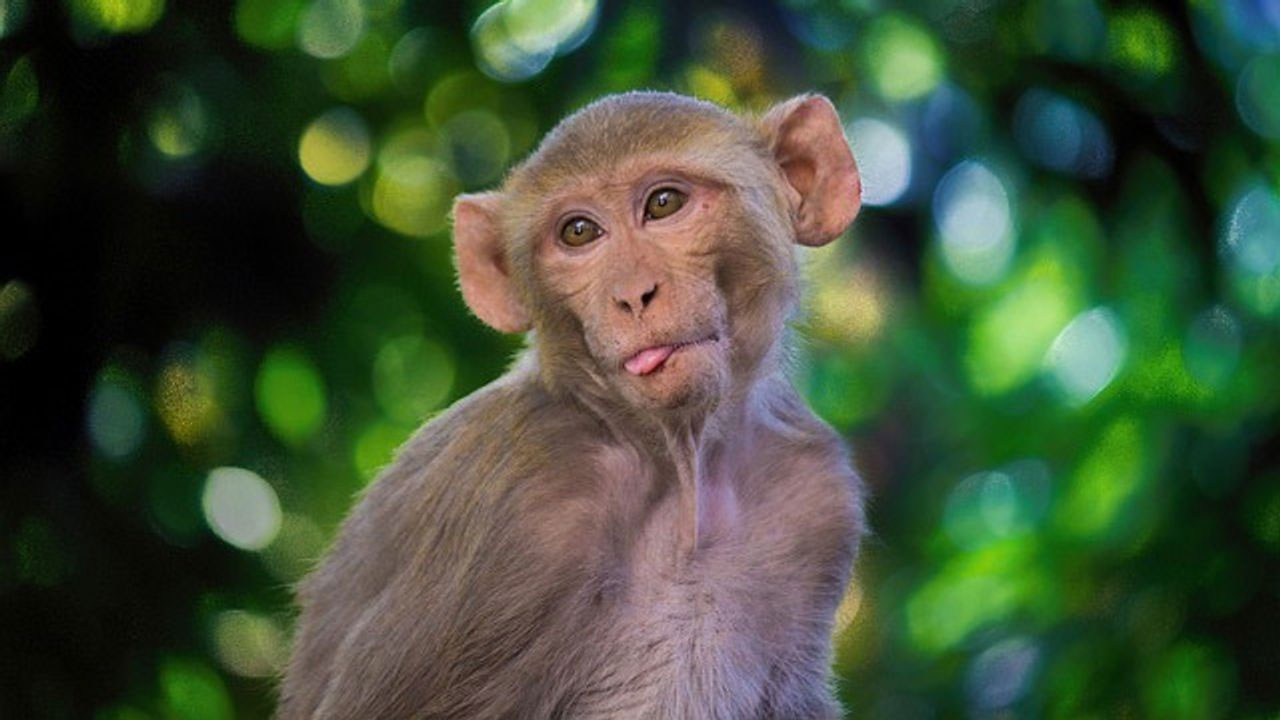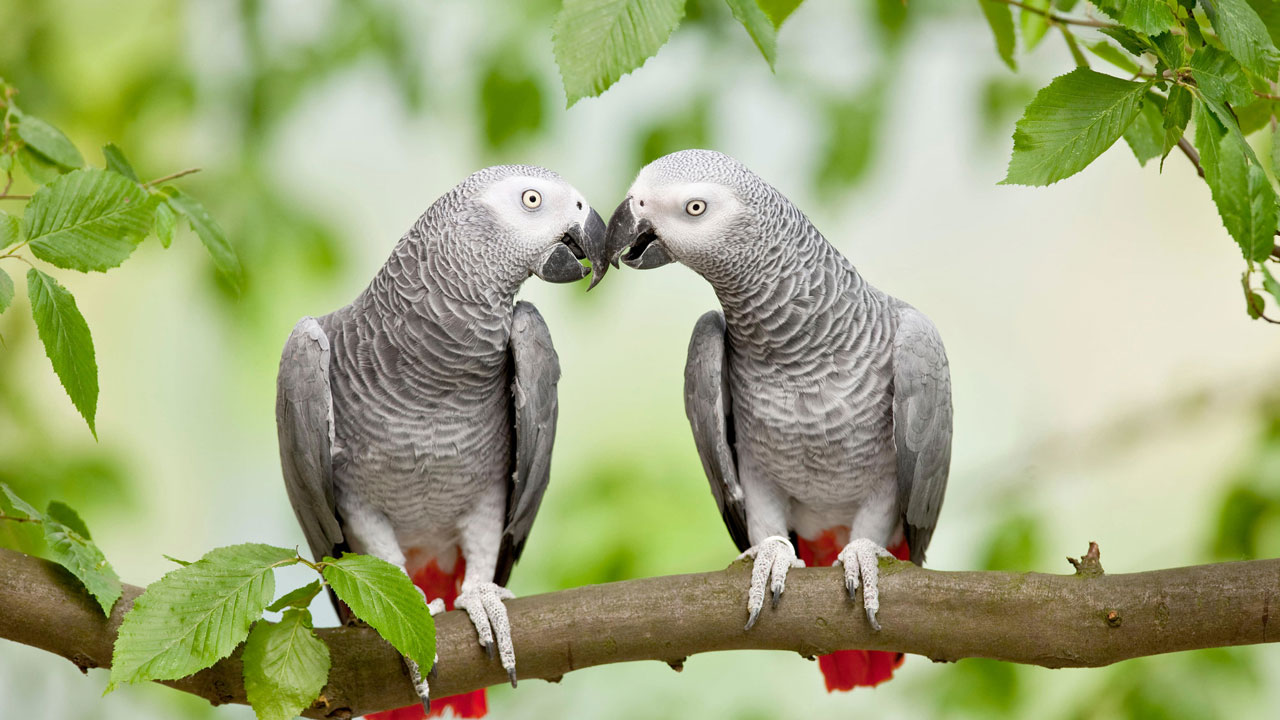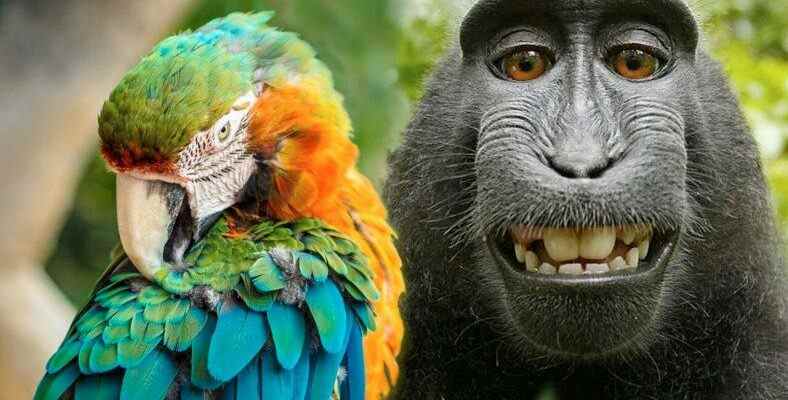You may have seen the information in many different corners of the internet that apes, specifically chimpanzees, are the closest species to humans in terms of genetics. So why can’t this species talk and communicate like us, despite being so close to us? Also, how is it that parrots, who are nothing like us, can imitate our voices regardless of language?
In fact, it is known as the closest animal to man. monkeys exhibits surprisingly similar characteristics from time to time. It does this both in individual activities and in family structures we can see. However, our distinctions on some points that make us who we are can also cause confusion.
Your speech abilities are not yet as good as ours. to be underdevelopedwas one of our aforementioned distinctions that caused confusion until recent years. Another confusing issue that follows is that although they have no resemblance to ours, there are some of the birds He was able to make the sounds we make. Let’s clear up the confusion about the two issues.
We know they shout and make different sounds. But that means we have to go back a bit to find out why monkeys can’t talk:
The reason monkeys cannot speak is because they have had the necessary structures in their throats for many years. they do not have was known as This conclusion was reached as a result of experiments carried out in the 1960s and 70s. In this experiment, scientists naturally a dead monkey They obtained information through calculations by examining the throat structure. A drugged monkey was also used. This throat structure, which is quite small compared to that of a human, vowels It indicated that it could not be removed.
Years later, in a study conducted in 2016, the real truth emerged:
The experiment we just talked about Philip Lieberman was made by We can say that this research imitated the same with more advanced techniques. The same species (macaque) monkeys took part in the experiment in question. But this time all was alive.
The throat structure of the monkeys in question, while communicating with each other, eating and making sounds. x-ray was watched live. As a result, a large number of images were obtained and this throat structure was three dimensional model was revealed. The air passing here was then simulated in different positions, and as a result, the sounds they could make were theoretically revealed.
A macaque monkey asks you, “Will you marry me?” If he had said (Will you marry me?) you would have heard something like this:
- This sentence was chosen because it contains enough different vowels.
Now let’s come to our main topic: If they have the opportunity, why don’t they talk?

Because the problem is not in their throat, in their brains. The brain in question is not developed enough to enable them to imitate sounds. They can understand the situation they are in from certain sounds and produce sounds accordingly, but when it comes to translating it into a language by using their vocal cords like us, their brains falls short.
So the bottom line is they have the whole set to be able to speak, but they’re limited by their brains. W. Tecumseh Fitch, lead author of the 2016 study, if instead of theirs human brain if the monkeys that they can talk had stated.
Parrots can make beautiful sounds even if they don’t speak. So what’s different here?
your parrot He can learn to swear, learn to greet and memorize the different words he is constantly exposed to. But remember, they never know the meaning of most of these words. well just imitation they do.
We cannot make the ‘p’ and ‘b’ sounds without closing our lips. So how do these parrots with no lips pull it out?

Vox
When parrots will talk from your lungs They play with the incoming air and thus make certain sounds. When you think of the respiratory system as an inverted sling, our vocal cords are in our throat, in the larynx. But the part that allows the parrot to produce sound open to the lungs the fork is located there.
We direct the air and make sounds with the movements of our vocal cords. Parrots are at the point of distinction we mentioned. to the muscles has. In this way, they can produce a certain sound by closing a road at that junction, and a different sound by closing the other road. In this context, ‘p’ and ‘b’ sounds, compressing the air We can say that they formed by leaving in a moment. In addition, they can shape the sound by adjusting the beak and tongue position.
Let’s not forget that they are social animals by nature:

in the wild from bird voice We can say that they cannot go forward. When they are at home, they will imitate them because they bond with their owners. This, of course, is determined by the bond between you and your parrot. Again every parrot will talk Let me point out that there is no such rule.
RELATED NEWS
This is how your face shape can change when you breathe through your mouth instead of your nose while you sleep at night! So why?
You can express your thoughts in the comment section.
Sources: Science ABC, Vox, Science, National Post, SciShow, Washington Post,
